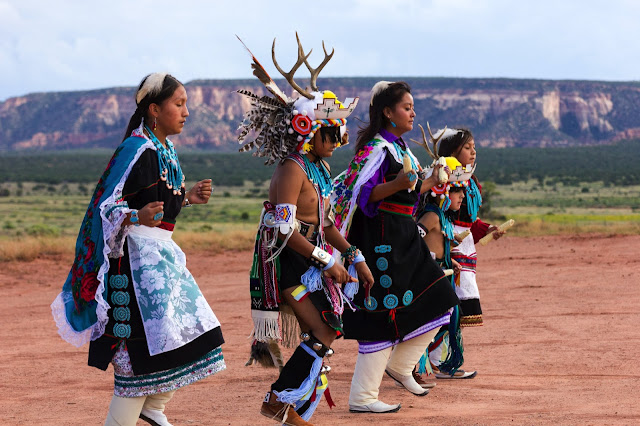Slammin’ Judges, Gunslingers—and Stunning Native Voting-Rights Wins
This article appeared on Indian Country Media Network in 2014. For more on topics like this, see my book, American Apartheid: The Native American Struggle....
Native voting-rights advocates scored three successes
in three cities on one day—January 22, 2014. One was in South Dakota, and two were in Montana. That morning in a federal
courtroom in Great Falls, Montana, the Wolf Point School District acknowledged
before U.S. Magistrate Judge Keith Strong that its school-board electoral
districts are
malapportioned, violating Native voters’ constitutional rights.
The school district serves children from the Fort
Peck Indian Reservation. Currently, each board
member from the mostly non-Native part of town represents 143 people, while
each member from the mainly Native area represents 841 people. As a result of
shutting out Native parents, studies have shown, Fort Peck kids have received
an appalling education for decades.
The Fort Peck plaintiffs
were represented by the American Civil Liberties Union. “You could say things
went well for us,” opined Jim Taylor, Montana ACLU’s legal director.
“No question, progress was made,” said co-counsel
Laughlin McDonald, director emeritus of the ACLU’s Voting Rights Project. He
credited “the Voting Rights Act and increased awareness of the importance of
equal participation.”
Now Jackson et al v. the Board of Trustees of Wolf Point School District
moves into the remedy phase, according to McDonald. This might include
redrawing the electoral districts, changing the school board’s size and
“bailing in” the board under the Voting Rights Act. The last would put the board
under ongoing Justice Department scrutiny.
“We’ll meet with the other
side and pursue mediation,” said McDonald. “If we can’t agree by February 21, we’ll
have another hearing on February 24, and the court will decide.”
The same afternoon, over in Billings, Montana, U.S.
District Judge Donald Molloy had a burr under his saddle even before he opened
a preliminary hearing for voting-rights case Wandering Medicine v. McCulloch. The lawsuit was brought in 2012 by
tribal members who want early-voting offices on their reservations. The offices
would give them the same number of days to register and vote as other Montana
residents.
State and county officials oppose this. Their side
seemed triumphant until the first judge hearing the case hung up his robes
after revelations that he’d sent hundreds of racially and sexually charged
emails. Judge Richard Cebull’s 2012 decision denying the early-voting offices
was vacated by the Ninth Circuit Court of Appeals in October 2013, Judge Molloy
took over, and everyone was back to square one.
The state and county officials petitioned Judge
Molloy to stop the Native plaintiffs from continuing to use David Bradley Olsen
as their pro bono attorney, claiming he was overly aggressive. Olsen is an
award-winning lawyer from Henson & Efron, a large Minnesota firm. Both the firm and co-counsel Steven Sandven, of Sioux Falls, told the judge Olsen is able to handle
the research required by a complex case like Wandering Medicine. Olsen was also one of the attorneys who argued
before the Ninth Circuit when it vacated Cebull’s decision; Olsen is seen here during that hearing. Keeping Olsen out
of Montana probably seemed like a good idea.
Judge Molloy set a hearing for January 22, listened to the officials’ legal team defending their claims about
Olsen, then dismissed them, calling them “vexatious” and “frivolous” and
warning “this is not a very good way to start off with me.” However, the judge
also cautioned Olsen that “every gunslinger that comes to town thinks he’s the
toughest one, but check your guns at the border and do your job as a lawyer,
and we’ll all [be] able to deal on the merits of what I think is a very
interesting case.” He brought down his gavel and ended
the hearing.
Lead plaintiff Mark Wandering Medicine, who’s
Northern Cheyenne, was pleased. “It felt like we’re finally on an equal
footing, with a judge who wants to stick to the facts and the law. He has given
us what we always wanted, equal respect, and now the case will progress.”
Text c. Stephanie Woodard. This article
was written with support from the George Polk Center for Investigative
Reporting. Image courtesy Wikimedia Commons.



